Over the past several nights, dozens of motorcycles have roared through Beirut’s Dahiyeh district, a Hezbollah stronghold. Riders honk incessantly, wave Hezbollah flags, block roads, and burn tires. Lebanese soldiers have detained some of them, but the noisy protests continue night after night, rattling the capital.
The unrest has come in response to a dramatic cabinet decision on August 5 ordering the Lebanese army to prepare a plan to disarm the Hezbollah terror group by the end of the year.
Two days later, the government formally approved the objectives of a US proposal presented to ministers, which includes a long-term ceasefire with Israel and a reconstruction program for Lebanon.
Reading the decision after the cabinet meeting, Information Minister Paul Morcos also committed to a “gradual dismantling of non-governmental armed organizations, led by Hezbollah.”
It was an almost unprecedented moment — an explicit mention of the group in the context of disarmament by the Lebanese government. Shortly afterward, the US envoy posted on X: “Congratulations to the President of Lebanon, the Prime Minister, and the Council of Ministers for making the historic, bold, and correct decision… This week’s Cabinet resolutions finally put into motion the ‘One Nation, One Army’ solution for Lebanon.”
Prime Minister Benjamin Netanyahu linked the move to Israel’s military campaign against Hezbollah last year, saying during a press conference this week that disarmament was happening thanks to the Israel Defense Forces’ successes.
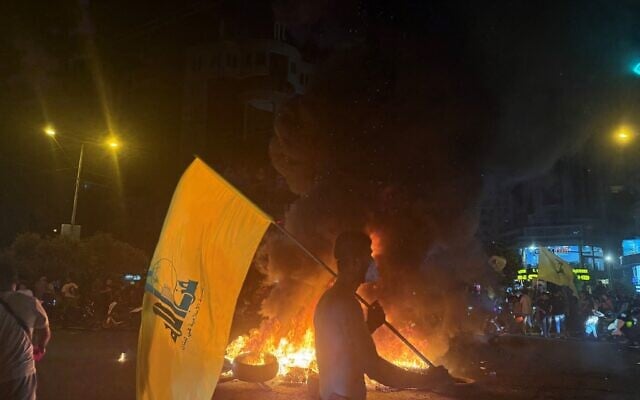
For both Washington and Jerusalem, the decision is a milestone: after long negotiations, Lebanon has for the first time set a timeline for disarmament. The Lebanese president and prime minister have repeatedly stated in recent months that the state will have a monopoly on holding weapons. Now they appear to be following through on that commitment.
Hezbollah’s initial response was limited
Beyond sending motorcycles into the streets, Hezbollah has so far confined its reaction to defiant public statements. In its central message, the group condemned the order to dismantle it, declared that it would not relinquish its weapons, and stated that it would “pretend the decision does not exist.”
On Friday, Hezbollah’s leader Naim Qassem directly threatened the government, claiming that there would be “no life in Lebanon” should its weapons be taken by force. Any forcible seizure would lead to internal unrest, undermining the country’s national security, he warned. He further accused the government of buckling to Israel, saying its leaders were “implementing an American-Israeli order to end the resistance, even if it leads to civil war and internal strife.”
The Lebanese government is unlikely to be intimidated by the comments.
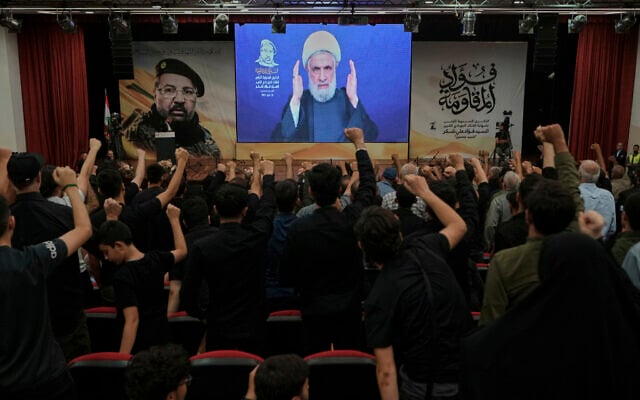
Moran Levanoni, a veteran analyst of Lebanon and Hezbollah at the Institute for National Security Studies, believes the group’s restrained public stance does not reflect its full range of possible responses — foremost among them armed confrontation with Lebanon’s security forces.
“Ultimately, if Hezbollah does not want to give up its weapons, the weapons will not be [in government hands],” Levanoni told The Times of Israel. “The Lebanese government is digging in its heels and sees this as a make-or-break moment. All the actors understand Hezbollah is in its weakest state. But it still cannot happen without Hezbollah’s agreement, because in Lebanon, there is always the possibility of descending into internal violence. If Hezbollah feels strong enough, and its Iranian backing is significant enough — meaning the Iranians support it — it will open fire [on the Lebanese army].”
Hezbollah’s military capabilities were significantly degraded by Israel over the last 22 months, after the group began firing on Israel’s north on October 8, 2023.
Israel intensified its military response to Hezbollah in September, detonating explosives hidden in the pagers and walkie-talkies of thousands of Hezbollah operatives, and launching a powerful air campaign alongside a limited ground incursion.
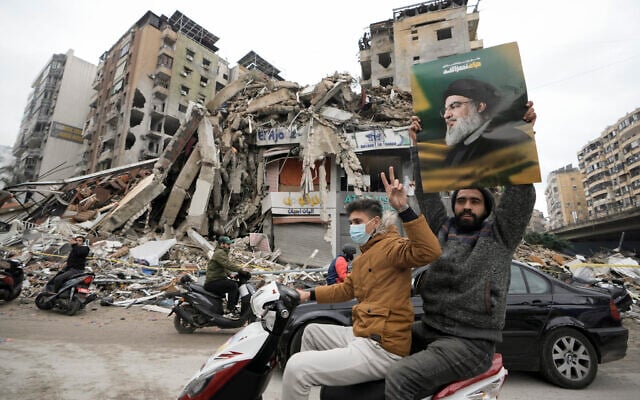
During the war, Israel killed Hezbollah’s powerful leader Hassan Nasrallah and many of his top commanders, while putting much of the group’s arsenal out of service.
In late November, a severely weakened Hezbollah agreed to bow out of the war, accepting an unfavorable ceasefire.
Since then, the IDF has continued near-daily strikes on Hezbollah operatives in southern Lebanon who are in violation of the ceasefire terms, which dictate that the terror group withdraw its forces north of the Litani River. By late July, IDF officials assessed that this pressure could push the group to consider disarming.
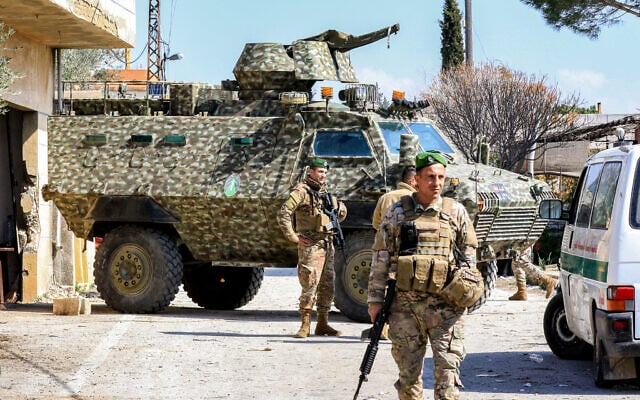
The Lebanese army has also taken action against Hezbollah since the truce began. In May, Prime Minister Nawaf Salam told The Wall Street Journal that his government had completed about 80% of its mission to disarm militias in southern Lebanon.
But Levanoni doubts Lebanon’s army is strong enough to confront Hezbollah directly: “During the last war, the Lebanese army had to receive donations from Qatar so soldiers would have food. The army has said it needs another 4,500 troops to fulfill its missions in southern Lebanon [against Hezbollah]. That is a lot of money for salaries, which the Lebanese army currently does not have.”
Economic strain: A potential weak link
Money may ultimately be the key to the disarmament of Hezbollah, which has in the past maintained a large base of support through generous handouts. In 2022, Forbes ranked Hezbollah the third-richest terror group in the world, after the Taliban in Afghanistan and Yemen’s Houthis, with annual revenues of $1.2 billion. Of that, $800 million came directly from Iran.
Now, after both it and its patron suffered heavy losses against Israel, the terror group is struggling to find the money needed to continue paying for support. In recent weeks, Arab media have reported that Hezbollah can no longer fund scholarships for the sons of its fighters killed in the war with Israel, and has told residents of southern Lebanon it cannot pay compensation for war damage.
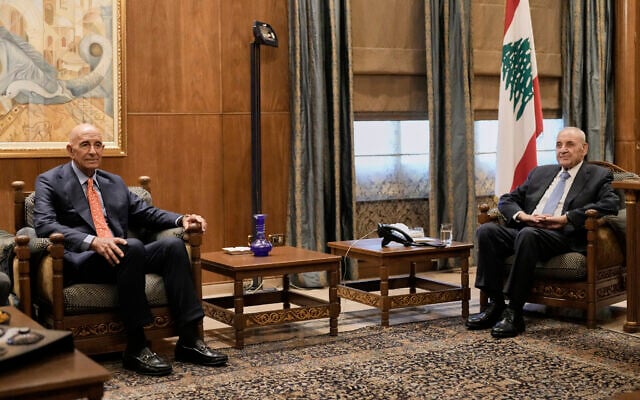
“Hezbollah did not [just] operate in Shiite villages in southern Lebanon during the war — it was the Shiite villages in southern Lebanon,” Levanoni stressed. “Now, much of that population is displaced, living with relatives or in camps, and hasn’t necessarily returned. Part of the Shiite population is very disappointed in Hezbollah. They thought Hezbollah would defend them in the south, and surprise, Hezbollah did not stand up to the ‘Zionist army.'”
“And with the problems Hezbollah has in transferring funds — there was a recent report that it will no longer support the families of its martyrs — this is a big blow. The economic situation can have a major impact on the loyalty of its supporters,” Levanoni said.
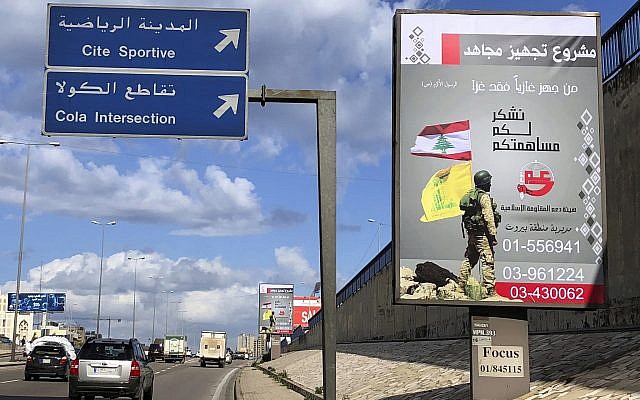
Economic pressure also works on Hezbollah’s opponents. According to Lebanon’s own estimation, the country has suffered around $10 billion in damages from the war. Many countries, including Saudi Arabia, have conditioned large-scale financial aid on Hezbollah’s disarmament.
But Levanoni warned this approach could backfire if other powers come to Lebanon’s aid in the meantime: “This [financial] condition means we throw away all the successes so far [against Hezbollah] and give the Iranians, Qataris, and Turks an opening to get back a hold on Lebanon. There should be a support plan for the Lebanese government and army so they are ready for this mission. One way [to act against Hezbollah] is to choke it financially — this is happening, but it hasn’t reached its full potential yet.”
Models for disarmament
On paper, the Lebanese army is expected to submit its disarmament plan by the end of this month, with the process to be completed by the end of 2025. Although the decision was made under heavy international pressure, it is ultimately a Lebanese choice — and the country’s leaders have stressed that disarmament will be implemented through dialogue with Hezbollah.
At the press conference after the American proposal was accepted, Morcos avoided answering whether force would be used; the memory of the 1975 civil war still hangs heavy over the highly diverse republic.
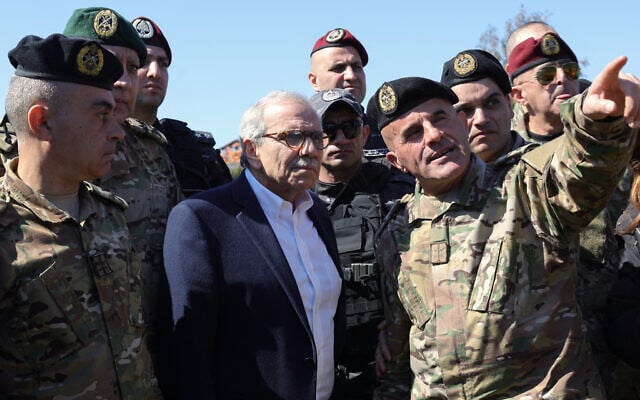
The government initially sought to reach a disarmament agreement with Hezbollah’s political wing, but failed. The decision was therefore made without the group’s consent. Parliamentary speaker Nabih Berri, head of the Hezbollah-allied Amal Movement, had been expected to mediate as he did in brokering the ceasefire between Hezbollah and Israel, though he appears to have recused himself.
In practice, Hezbollah will have to be a partner in any disarmament, which can be accomplished through several means. One is the “Iraqi option,” in which Hezbollah fighters would be integrated into the Lebanese army, effectively maintaining their military capacity as a separate unit — much like Iraq’s pro-Iranian militias.
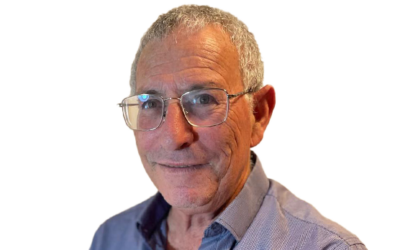
“This is a terrible option; the pro-Iranian militias in Iraq are a success model for Iran,” Levanoni warned.
Another model, seen with Hamas in Gaza, is the creation of shell terror groups that could store weapons and perform attacks in their own names, without technically implicating Hezbollah.
That, too, would suit Hezbollah, but not those seeking to end its role as an armed actor.
The bigger picture
Ultimately, Hezbollah will only cooperate with an actual disarmament if it feels too weak to fight militarily.
“A lot of other things need to happen for this to occur. Right now, it seems a bit imaginary. It depends on how much Iran supports them, how determined the Lebanese army will be to act against them, or whether it will be done with a wink, as in the past,” Levanoni said.
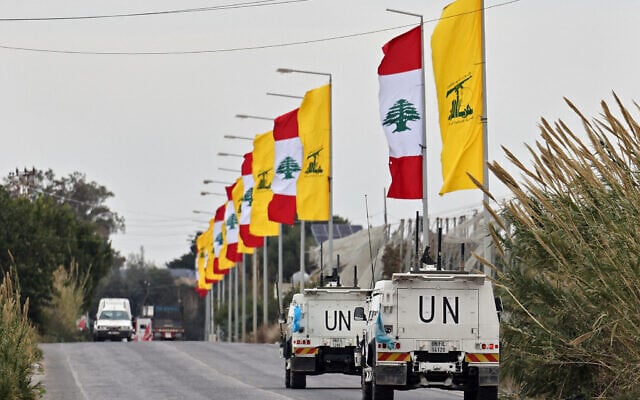
Behind the question of Hezbollah lies a larger issue: the future of Lebanon and its Shiite population. Hezbollah was founded more than four decades ago in part due to the Shiites’ sense of marginalization, and that remains the foundation of its power.
“The Shiites are now more than a third of Lebanon’s population; they’re not going anywhere, and they need political representation,” said Levanoni. “Currently, their primary political expression is Amal and Hezbollah. [Israel] might be able to aspire — not out loud, and certainly not act toward it, because such attempts have never succeeded — but if we could reach a situation where Hezbollah became a [demilitarized] political party, it could be quite a good solution. In my opinion, it’s even the preferred solution.”

